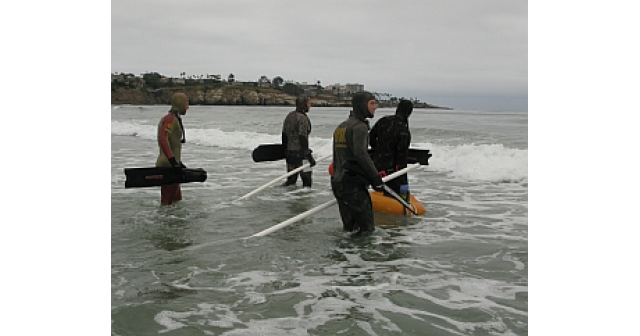Cold Water Equalization
by Mark Lozano - September 25th
Equalization in cold water is inherently more difficult than equalizing in warm water. I’ve noticed that the number of students having equalization problems is tremendously larger here in California than in Florida


Last summer was a very cold one for us out here on the west coast, with water temperatures never really reaching more than 68F, and that was only for about a week. I found that there was a magic number. At just about 67F it became easier for my students to equalize! It’s too bad that we cannot control the water temperature in the ocean, however we are able to control the temperature of the water we equalize against. A small invention known commonly as Doc’s Pro Plugs, will cost you a mere twelve bucks at your local dive or surf shop. Doc’s plugs come in two types, surfer’s plugs and divers plugs. The difference between the two is that the divers plugs are perforated to allow for equalization. You also have the option of a leash. Personally I dislike the leash, because I’ve found that it gets caught in my hood and therefore tugs on my plugs leaving my ears not feeling so great after a couple of hours in the water.
The plugs come in various sizes and you should be fitted at the shop where you purchase them. Doc always suggests that once you think you’ve found the right size, to perform the ‘humm’ test, by putting both plugs securely into place and simply humming. The sound should resonate in your head if they are the right fit.
The theory behind wearing the plugs is that the water between your hood and your face will warm up and slowly enter through the perforated plug, therefore when the water enters your ear canal and rests against your ear drum, it is nice and warm, and pretty much stays there or drains out slowly. As opposed to diving without the plugs, where the water constantly flows in and out of your ear canal.
This is the quickest and easiest way to solve cold water equalization problems. If you’re still having troubles after this small investment, then its probably allergies, in which case you should call DAN and get a referral for a local ENT who has experience working with divers.
‘Till next time, dive safe!
Mark Lozano
